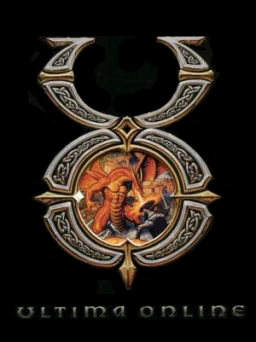
Ultima Online (UO) is a fantasy massively multiplayer online role-playing game (MMORPG) released on September 24, 1997 by Origin Systems.
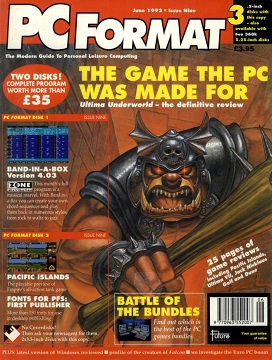
PC Format was a computer magazine published in the United Kingdom by Future plc, and licensed to other publishers in countries around the world. In publication between 1991 and 2015, it was part of Future plc's Format series of magazines that include articles about games, entertainment and how to get the most out of the platform. Despite the occasional mention of alternatives, PC Format takes the term 'PC' to mean a Microsoft Windows-based computer.

Computer and Video Games was a UK-based video game magazine, published in its original form between 1981 and 2004. Its offshoot website was launched in 1999 and closed in February 2015. CVG was the longest-running video game media brand in the world.
Artworx was a Naples, Florida software company that produced and supported a line of computer games from 1981 to 2020. It is named after the founder's given name. At first the company published a variety of games, including titles in adventure and arcade-action genres, but were later best known for a strip poker series.

Atomic once was a monthly Australian magazine and online community that focused on computing and technology, with a great emphasis on gaming, modding and computer hardware. Atomic was marketed at technology enthusiasts and covered topics that were not normally found in mainstream PC publications, including video card and CPU overclocking, Windows registry tweaking, and programming. The magazine's strapline was 'Maximum Power Computing', reflecting the broad nature of its technology content.
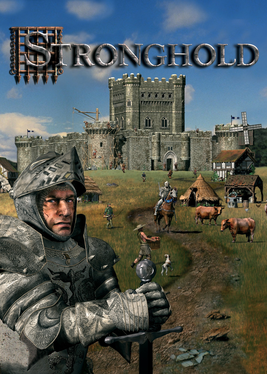
Stronghold is a historical real-time strategy video game developed by Firefly Studios and published in 2001 by Gathering of Developers for Microsoft Windows and Mac OS X. The game focuses primarily on conquest and expansion through military pursuits but also has prominent economic and infrastructure development elements. There is both an economic and a military campaign to be played and both are discussed in the game manual. In the English version, the game takes place in Medieval Britain around the year 1066; however, since there is not always a time limit, scenarios can continue hundreds of years beyond that date.

Knights and Merchants: The Shattered Kingdom is a medieval-time based real-time strategy (RTS) video game. It was developed by Joymania Entertainment and published by TopWare Interactive in 1998. The player takes the role of the captain of the palace guards and leads the soldiers and citizens to victory. An expansion pack was released in 2001, titled Knights and Merchants: The Peasants Rebellion.
Atari Corporation was an American manufacturer of computers and video game consoles. It was founded by Jack Tramiel on May 17, 1984, as Tramel Technology, Ltd., but then took on the Atari name less than two months later when Warner Communications sold the home computing and game console assets of Atari, Inc. to Tramiel. Its chief products were the Atari ST, Atari XE, Atari 7800, Atari Lynx and Atari Jaguar.

The video game series based on the game show Family Feud began with ShareData's 1987 release on the Apple II and Commodore 64 consoles. In 1990 GameTek released a version on the NES. GameTek later released four more Feud games for the Super NES, Sega Genesis, 3DO, and PC between 1993 and 1995. Hasbro Interactive, Global Star, and Ubisoft have also released versions starting in 2000.
SegaSoft, originally headquartered in Redwood City, California and later San Francisco, was a joint venture by Sega and CSK, created in 1995 to develop and publish games for the PC and Sega Saturn, primarily in the North American market.
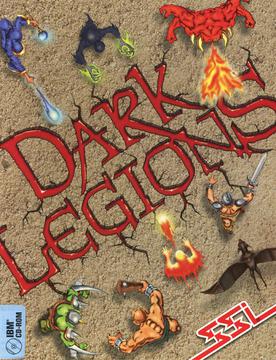
Dark Legions is a 1994 action strategy game for MS-DOS. It was developed by Silicon Knights and published by Strategic Simulations (SSI).

Overlord is a combat flight simulator by Rowan Software. It was released in 1994 for Amiga and PC MS-DOS platforms.
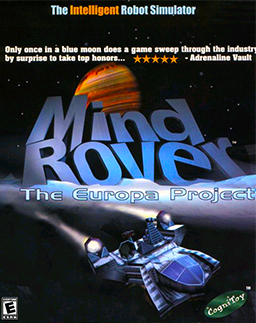
MindRover is a video game for PC, developed by CogniToy.
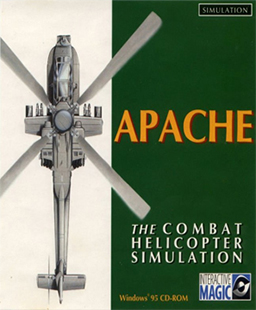
Apache is a video game released by Digital Integration in 1995 for DOS and Macintosh. The game is a combat flight simulation of the American AH-64D Apache Longbow helicopter. A successor, Hind, was released in 1996.
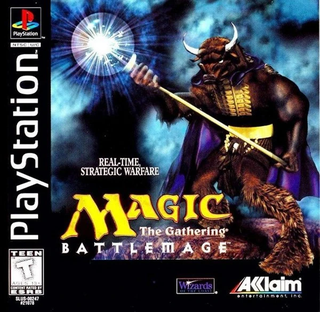
Magic: The Gathering: BattleMage is a real time strategy game published in January 1997 by Acclaim for both PCs and PlayStation. It was also in development for the Sega Saturn, but this version was cancelled in mid-1997.

Air Warrior II is a video game developed by American studio Kesmai Corporation and published by Interactive Magic for Windows. It is a sequel to Air Warrior.
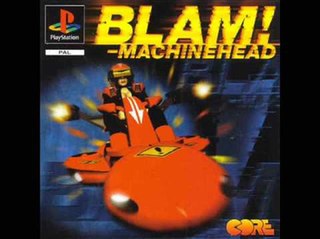
Blam! Machinehead is a first-person shooter developed by Core Design and published by Virgin Interactive and Eidos Interactive, released for Sega Saturn, MS-DOS, and PlayStation in 1996.
Buy-to-play (B2P) is a revenue model for video games where a game can be played after a one-time purchase, as opposed to a subscription model where the player must pay a subscription at regular intervals to continue having access to the game. Buy-to-play, while a form of premium games, generally apply to games where there is continued ongoing content or support from the developer or publisher well beyond the period of purchase, such as through maintenance of online servers or through the production of ongoing content and expansions, as often the case in massively multiplayer online games (MMO). This support is monetized through additional microtransactions or through an ongoing subscription fee. Microtransactions are becoming evermore entwined with the Buy-to-play revenue model as most recent games allow for some sort of additional purchase. For example, buy-to-play title Guild Wars 2 allows players to purchase additional in-game items with microtransactions, while Destiny 2 lets users purchase season passes for additional content.
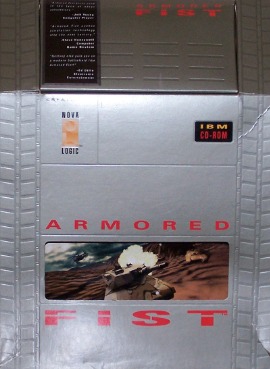
Armored Fist is a video game developed and published by Novalogic for the PC. It was followed by Armored Fist 2 and Armored Fist 3.

Fire Fight is an isometric shoot 'em up video game developed by Polish studio Chaos Works, produced by Epic MegaGames and published by Electronic Arts for Windows.
















